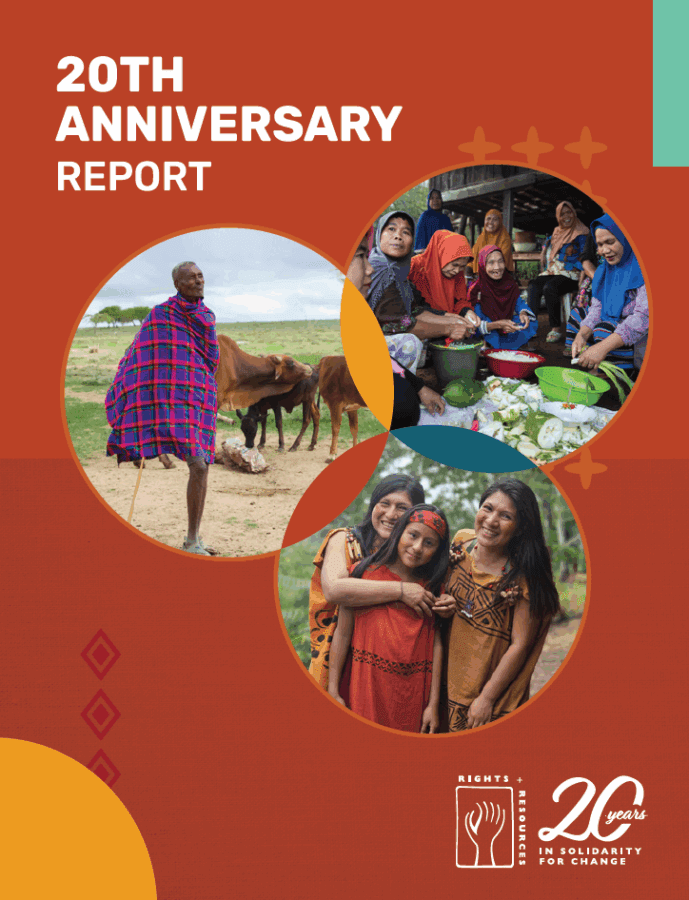Date: June 13, 2025
For Rights and Resources Initiative (RRI), 2025 marks two decades of solidarity with Indigenous Peoples, Afro-descendant Peoples, and local communities in their struggle to secure land and resource rights. This report, Rooted and Rising: 20 Years of Collective Impact and the Road Ahead, depicts how RRI has spent those years growing into a solidarity network that encompasses over 200 member organizations across more than 40 countries. Over 20 years, RRI has catalyzed change through evidence-based advocacy, convenings, and innovative funding mechanisms. Its analyses, such as Who Owns the World’s Forests?, Who Owns the World’s Land?, and Resilience and Resistance, have become global benchmarks, supporting reforms in over 35 countries.
Through mechanisms like the Strategic Response Mechanism (220 funding interventions in 35 countries since 2008), the Tenure Facility (33 million hectares impacted in 2024 alone), and CLARIFI (182 grants in 29 countries since 2022, including over $1.5 million to women-led groups), RRI has mobilized resources at scale. It has influenced pivotal milestones such as Indonesia’s 2013 Constitutional Court ruling recognizing customary forests; Liberia’s 2018 Land Rights Act; and the formal recognition of Afro-descendant Peoples in the Convention on Biological Diversity in 2024.
While progress is undeniable, the work remains unfinished. RRI aims to secure an additional 400 million hectares of Indigenous and community forests by 2030, ensuring that communities, especially women and youth, can equitably benefit from ecosystem services and resist rollbacks, land-grabbing, and criminalization. Achieving this will require further strategic funding and continued systemic reforms.
With land and environmental defenders constantly at risk, the stakes remain high. This report is a celebration of the work RRI has done as a coalition, but it is also a call-to-action to ensure Indigenous, Afro-descendant, and local communities—who steward over half of the world’s land—are fully recognized as central to sustainable development, climate resilience, and biodiversity conservation.
https://doi.org/10.53892/ZYFW5691

